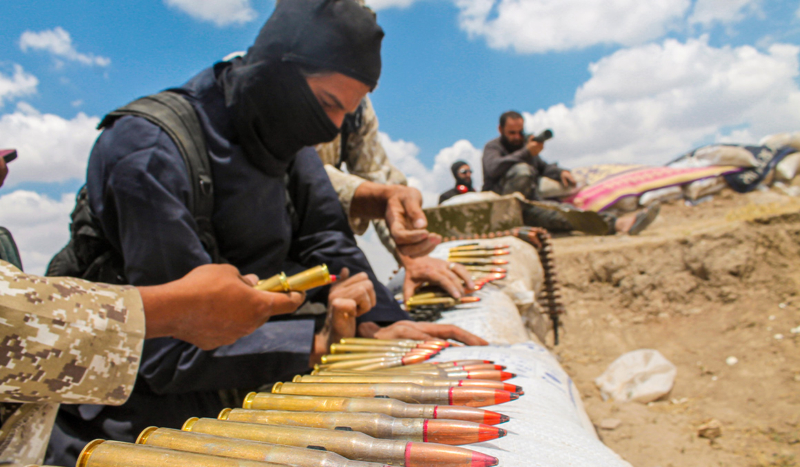
Mohammad Bash / Shutterstock.com
CV NEWS FEED // Mahmoud Al Hafyan, a Syrian national, has been charged with defrauding the U.S. government by diverting more than $9 million in humanitarian aid to an al-Qaeda-affiliated terrorist group, according to the U.S. Department of Justice.
In a Nov. 19 press release, the United States Attorney’s Office for the District of Columbia reported that the funds were intended to provide food and medical supplies to Syrian refugees but were instead misused to strengthen Al-Nusrah Front and personally enrich Al Hafyan.
According to the Washington Times, “Court documents didn’t name the NGO but listed the federal grant numbers involved. Those grants were traced back to Catholic Relief Services.” CRS has not responded to inquiries from Washington Times, the newspaper reported. CatholicVote has also reached out to CRS press officials and has yet to hear back.
“Not only was Al Hafyan supporting violent terrorists, but he was stealing money from the U.S. government that was meant for humanitarian efforts,” Sanjay Virmani, special agent in charge of the FBI’s Washington Field Office Counterterrorism Division, stated in the press release.
Al Hafyan, who managed the NGO’s operations in Syria, allegedly falsified records, inflated beneficiary logs, and directed food kits to Al-Nusrah Front commanders. Approximately 380,000 meal kits, valued between $9.3 million and $10.1 million, were diverted, according to calculations by the U.S. Agency for International Development Office of Inspector General and the non-governmental organization.
The Washington Times reported that, according to court documents, the scheme came to light after whistleblowers within the NGO reported suspicious activity. Witnesses saw Al Nusrah Front operatives displaying flags and collecting food kits intended for Syrian refugees. US-AID eventually discovered the fraud during on-the-ground inspections and shut down the program in late 2017.
Despite Al Hafyan’s claims that he was coerced into diverting the aid and his staged kidnapping, investigators found incriminating evidence, including spreadsheets listing food allocations to Al Nusrah Front personnel.
Nina Shea, director of the Hudson Institute’s Center for Religious Freedom, criticized USAID and the NGO’s failure to exercise proper oversight on the ground in Syria.
“The NGO that received the USAID grant is reported to be a large international aid agency and, as with others like it, apparently had no independent oversight on the ground in Syria,” Shea said in comments sent via email to CatholicVote. “It presumably unwittingly relied on a man it didn’t know very well to distribute millions of dollars of US taxpayer funds, and he funneled the money to the local al-Qaeda branch franchise — the very terrorists American troops have been fighting in the Middle East.
“So this is a double travesty,” she lamented. “Innocent Syrian refugees were deprived of the US aid, and our enemy was strengthened.”
This was not the first time that U.S. humanitarian aid has been diverted from those in need in the Middle East, Shea told CatholicVote.
“We saw this as a big problem in Iraq eight years ago when the U.S. gave generous aid to the UN which diverted it away from Christian and Yezidi victims of ISIS,” Shea added. “The latest Syria case is yet another outrageous example of USAID handing over massive sums of our money to large international agencies without them having adequate oversight on the ground. This is counterproductive and hurts American interests.”
Calling for proper oversight that ensures American dollars intended for charity and humanitarian aid actually reaches its intended beneficiaries, Shea said, “USAID should work with local civic groups — including local churches — who can verify if our intended beneficiaries are actually receiving our charity instead of those who aim to do us harm.”
According to the Washington Times, CRS has not addressed the allegations or its role in the oversight failures. While the organization’s grant allocations were intended for humanitarian purposes, the lack of robust monitoring mechanisms allowed Al Hafyan to exploit the system.
The Washington Times reported that Al Hafyan remains at large and his last known location was Gaziantep, Turkey.

